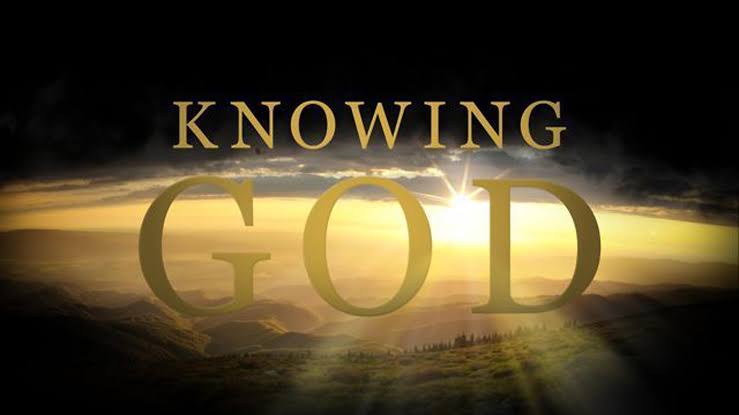The quest to know God is a deeply personal and profound journey that has intrigued humanity for millennia. Across cultures, religions, and belief systems, individuals seek to understand the divine, to establish a connection with the transcendent, and to find meaning and purpose in their lives. In this article, we will explore the multifaceted nature of knowing God, the diverse paths people take on this journey, and the transformative power it can have on one’s life.
The Nature of Knowing God
1. **Transcendence and Immanence**: Understanding God involves grappling with the paradox of God’s transcendence (beyond human comprehension) and immanence (God’s presence within creation). Different belief systems emphasize one aspect more than the other, shaping how individuals perceive and relate to the divine.
2. **Faith and Reason**: The pursuit of knowing God often involves a dynamic interplay between faith and reason. Some rely on faith alone, trusting in the unseen, while others seek intellectual understanding and theological insights.
3. **Mystical Experience**: Mystical encounters, characterized by a direct and profound sense of God’s presence, are a unique path to knowing God. Mystics across traditions describe moments of divine union and insight that transcend conventional understanding.
4. **Scripture and Revelation**: Many faiths consider sacred texts and divine revelations as sources of knowledge about God. The study and contemplation of these texts offer insights into the nature and will of the divine.
Paths to Knowing God
1. **Prayer and Meditation**: For countless individuals, prayer and meditation are foundational practices for knowing God. These contemplative exercises provide a space for spiritual communion and inner reflection.
2. **Religious Rituals**: Engaging in religious rituals and ceremonies, whether in a church, mosque, temple, or other sacred space, offers a structured way to connect with the divine.
3. **Study and Learning**: The study of theology, philosophy, and comparative religion can deepen one’s understanding of God’s attributes, nature, and the various ways in which God is conceptualized.
4. **Community and Worship**: Joining religious communities and participating in group worship can foster a sense of belonging and provide collective support in the journey of knowing God.
The Transformative Power of Knowing God
1. **Inner Peace**: Knowing God often brings a profound sense of inner peace and spiritual fulfillment. It can alleviate anxiety and provide solace during challenging times.
2. **Guidance and Purpose**: Many find that their understanding of God provides guidance and purpose in life. It offers a moral compass and shapes decisions and actions.
3. **Compassion and Love**: An awareness of God’s love and compassion can inspire individuals to extend these qualities to others, fostering empathy, kindness, and altruism.
4. **Transcendence of Ego**: Knowing God can lead to a transcendent experience where the ego diminishes, and one feels connected to a larger, interconnected reality.
The journey of knowing God is as diverse as the individuals who embark upon it. It is a quest that can encompass faith, reason, mysticism, and personal experience. Regardless of the path taken, the pursuit of knowing God often leads to profound transformations in individuals’ lives, offering wisdom, purpose, and a deep sense of spiritual connection. It is a journey that transcends the boundaries of time, culture, and religion, uniting humanity in the shared pursuit of understanding the divine.













Leave a Reply